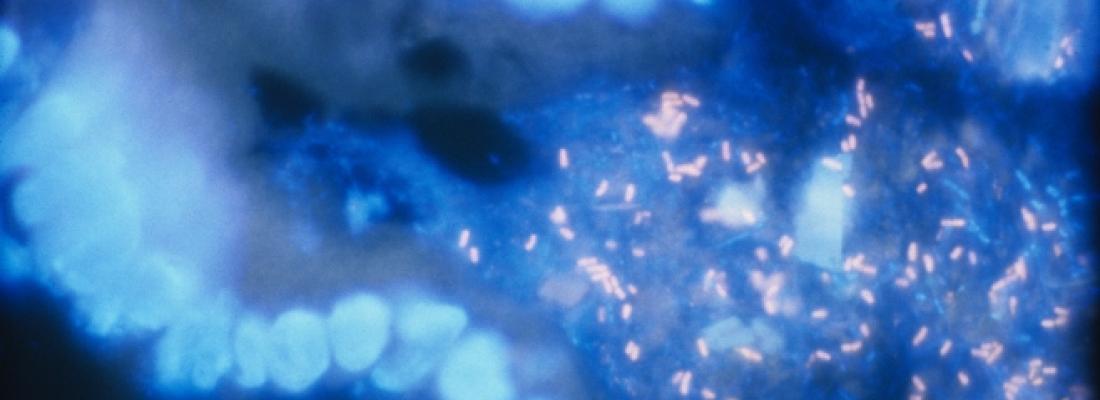Food, Global Health Reading time 4 min
Statins could help restore a healthy gut microbiome in obese people
Published on 28 May 2020

The MetaCardis project has been looking at the possible role of intestinal microbiota in the development of cardiometabolic disorders such as obesity, diabetes and cardiovascular disease by studying a cohort of more than two thousand European subjects, with and without these disorders (see inset below). The first results to be published from this study are those on obesity.
Obesity is associated with a microbiota profile known to encourage inflammation

The fact that microbiota found in obese people typically display relatively low bacterial biodiversity levels is already established. The MetaCardis study has provided us with a rich source of data, revealing that one particular microbiome profile (known as Bact2) is to be found in 19% of obese people, but in only 4% of those who are not obese. This profile is characterised by a high proportion of bacteria of the bacteroides genus, and a low proportion of bacteria with anti-inflammatory properties, such as Faecalibacterium, and is known to be more common in patients suffering from inflammatory disorders of the gut, multiple sclerosis and depression. Where this profile is found in healthy individuals, their inflammation levels are slightly higher than would otherwise be expected.
"Since this microbiome profile is correlated with inflammation, it is no surprise to find that it occurs more often in obese people in whom a so-called 'low-level' inflammatory state is often observed", says Karine Clément, MetaCardis project coordinator. "Indeed, the accumulation of fatty tissue leads to the production of inflammatory molecules, since lymphocytes and macrophages will migrate into such tissue. The presence of these inflammatory cells in turn fosters obesity in a vicious circle and it may well bring about resistance to weight-loss. However, we don’t as yet know whether this high proportion of the Bact2 profile in obese people is a cause or a consequence of obesity-associated inflammation."
Statin treatment eliminates higher occurrence of the Bact2 profile in obese people
The real surprise in this study has been the effect of statins, prescribed to reduce cholesterol in the blood and thereby lower the risk of cardiometabolic diseases. In obese subjects taking statins, the percentage of those with a Bact2 profile fell to just 6% (compared with 19% in obese subjects not treated with statins). This is close to its occurrence in the rest of the cohort (4%). It thus appears that statin treatment is associated with the maintenance of a healthy gut microbiome.
The study has established a correlation but was not designed to demonstrate a causal effect for statins. It therefore remains to be determined whether these medicines have a direct effect on the composition of the gut microbiome, and in what way. Indirect effects cannot be discounted, for example, it is possible that participants undergoing statin treatment are more conscious of cardiovascular risks, engaging in healthier lifestyles that have a positive impact on their intestinal flora.
The results are nevertheless very promising. Statins are already known to reduce inflammation levels and might thus create an intestinal environment favourable to the development of a balanced microbiome. Elsewhere, the direct impact of statins on bacterial growth has already been demonstrated. Exploratory clinical trials have begun at the Georges-Pompidou European Hospital and the Pitié-Salpêtrière Hospital in Paris, studying changes in the intestinal microbiota of patients who are just beginning statin treatment. These will enable us to assess the potential therapeutic use of statins to adjust gut microbiota in a beneficial way.
Reference: S. Vieira-Silva et al. Statin therapy is associated with lower prevalence of gut microbiota dysbiosis. Nature, 6 May 2020: https://doi.org/10.1038/s41586-020-2269-x
The Metacardis, project, coordinated by Inserm’s Karine Clément, involves a consortium of 14 multidisciplinary research groups across six European countries. This major project is built on the study of patient data both within national cohorts and as part of the wider MetaCardis cohort database hosted by the Paris public hospital group AP-HP. The project cohort boasts over 2000 participants, some in good health and others at the different stages of cardiometabolic disorders (obesity, diabetes and cardiovascular diseases), recruited in Paris, Leipzig and Copenhagen.
The numbers:
- The contact surface area of the digestive tract when straightened is 400m2 (our skin area is 2m2)
- The digestive tract’s microbiota contain 100,000 billion bacteria (weight = 2 kg), around 500 bacterial species and 540,000 bacterial genes (25 times more than in the human genome).
Examples of known functions of microbiota:
- Digestive functions: breakdown of fibre, uptake of food nutrients (carbohydrates, lipids) by the organism
- Immune functions: development of the immune system, protection from pathogenic bacteria in food, inflammation control
- Microbiota and influenza: read article (in French and English)
- Microbiota, stress and depression: read article (French only)
- Microbiota and muscular function: read article (French only)
- Microbiota and Irritable Bowel Syndrome: read article (French only)
See also press report (French only)
